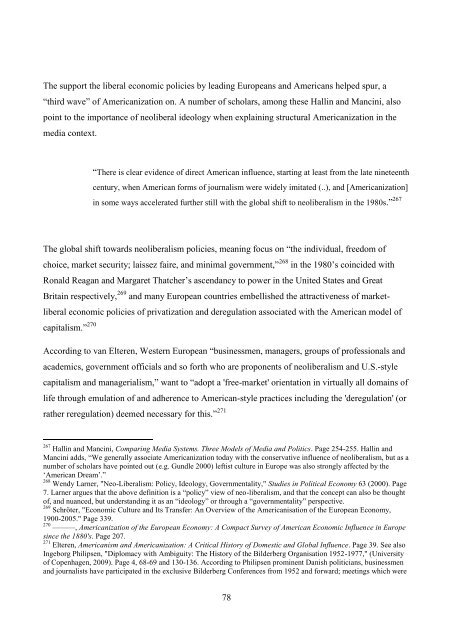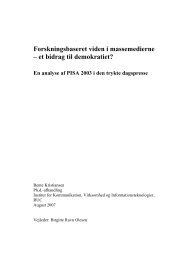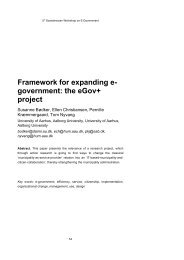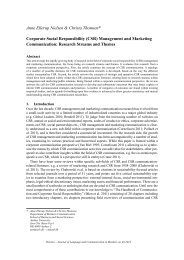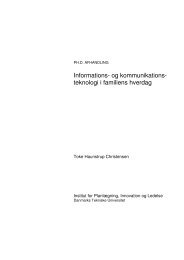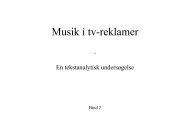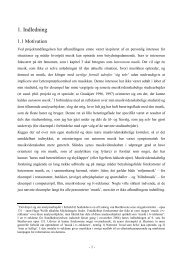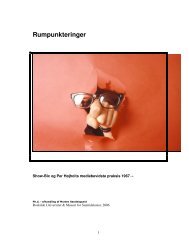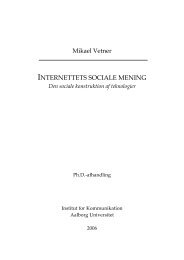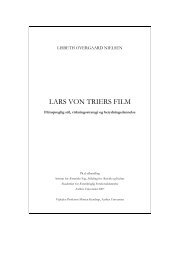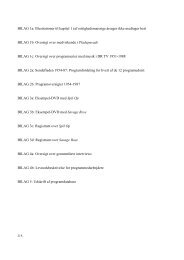The Jeremiad Over Journalism
The Jeremiad Over Journalism
The Jeremiad Over Journalism
You also want an ePaper? Increase the reach of your titles
YUMPU automatically turns print PDFs into web optimized ePapers that Google loves.
<strong>The</strong> support the liberal economic policies by leading Europeans and Americans helped spur, a<br />
―third wave‖ of Americanization on. A number of scholars, among these Hallin and Mancini, also<br />
point to the importance of neoliberal ideology when explaining structural Americanization in the<br />
media context.<br />
―<strong>The</strong>re is clear evidence of direct American influence, starting at least from the late nineteenth<br />
century, when American forms of journalism were widely imitated (..), and [Americanization]<br />
in some ways accelerated further still with the global shift to neoliberalism in the 1980s.‖ 267<br />
<strong>The</strong> global shift towards neoliberalism policies, meaning focus on ―the individual, freedom of<br />
choice, market security; laissez faire, and minimal government,‖ 268 in the 1980‘s coincided with<br />
Ronald Reagan and Margaret Thatcher‘s ascendancy to power in the United States and Great<br />
Britain respectively, 269 and many European countries embellished the attractiveness of market-<br />
liberal economic policies of privatization and deregulation associated with the American model of<br />
capitalism.‖ 270<br />
According to van Elteren, Western European ―businessmen, managers, groups of professionals and<br />
academics, government officials and so forth who are proponents of neoliberalism and U.S.-style<br />
capitalism and managerialism,‖ want to ―adopt a 'free-market' orientation in virtually all domains of<br />
life through emulation of and adherence to American-style practices including the 'deregulation' (or<br />
rather reregulation) deemed necessary for this.‖ 271<br />
267 Hallin and Mancini, Comparing Media Systems. Three Models of Media and Politics. Page 254-255. Hallin and<br />
Mancini adds, ―We generally associate Americanization today with the conservative influence of neoliberalism, but as a<br />
number of scholars have pointed out (e.g. Gundle 2000) leftist culture in Europe was also strongly affected by the<br />
‗American Dream‘.‖<br />
268 Wendy Larner, "Neo-Liberalism: Policy, Ideology, Governmentality," Studies in Political Economy 63 (2000). Page<br />
7. Larner argues that the above definition is a ―policy‖ view of neo-liberalism, and that the concept can also be thought<br />
of, and nuanced, but understanding it as an ―ideology‖ or through a ―governmentality‖ perspective.<br />
269 Schröter, "Economic Culture and Its Transfer: An <strong>Over</strong>view of the Americanisation of the European Economy,<br />
1900-2005." Page 339.<br />
270 ———, Americanization of the European Economy: A Compact Survey of American Economic Influence in Europe<br />
since the 1880's. Page 207.<br />
271 Elteren, Americanism and Americanization: A Critical History of Domestic and Global Influence. Page 39. See also<br />
Ingeborg Philipsen, "Diplomacy with Ambiguity: <strong>The</strong> History of the Bilderberg Organisation 1952-1977," (University<br />
of Copenhagen, 2009). Page 4, 68-69 and 130-136. According to Philipsen prominent Danish politicians, businessmen<br />
and journalists have participated in the exclusive Bilderberg Conferences from 1952 and forward; meetings which were<br />
78


